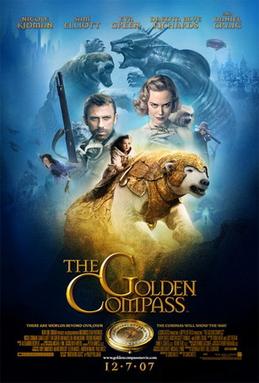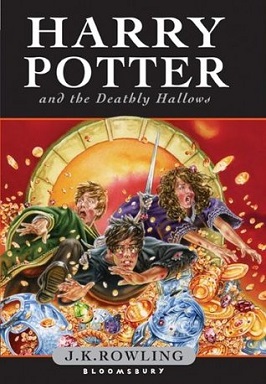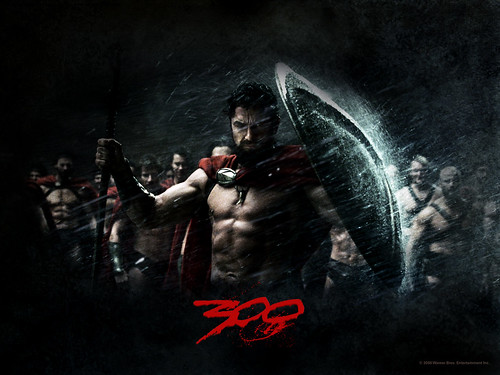On March 8, culture critic
David Dark , author of
The Gospel According to America and
Everyday Apocalypse, visited Lee University and delivered a talk entitled, "Apocalyptic for the People." He lives in Nashville and is married to singer/songwriter
Sarah Masen. Follwing is my response to his address.
I met David Dark in Los Angeles a few months ago. It was the second time I had heard him speak, and each time he was in the company of other speakers, all of whom were talking about Christians and pop culture, primarily TV and film. I have to say that my view of David at the time was colored by the company he was keeping, good people with whom I did not entirely agree. But I felt, and feel, that these people were leading Christians into a discussion about media that we have not generally been engaged in. So when I introduced myself to David and found out he was living in Nashville, I thought what better person would there be to come down and talk about this important topic. Only then, though, did I stop to read his book,
Everyday Apocalypse. And I got very excited. Here was my kind of guy! David Dark’s heresies are my heresies, for what it’s worth. He is saying stuff I’ve been trying to say for years, though perhaps not so well as David. So I was thrilled that we were able to get him down here.
But, after listening to David’s presentation, I have a confession to make. The terrible fact is that I don’t watch “The Simpsons.” I never have. I’m not sure that I’ve ever seen more than one or two full episodes and a clip or two. And even though David said he was not giving an altar call, I will say that I feel deeply convicted now and am ready to come on down and receive Bart Simpson into my heart.
In all seriousness, I have two areas of response to David’s remarks. The first is directed more toward Christian artists, the second toward his idea of a Community of Discerners.
I love the concept of Apocalyptic Discourse, this notion of communicating or sharing something that creates a pain that is only relieved by thinking, something that colonizes your brain, as David so aptly puts it, and demands some sort of change in you, whether you want it to or not, something that turns our comfortable world upside down.
I love this concept because I believe that David may be helping us to rediscover our birthright as Christians, the one that was supposed to come with the new birth. It seems appropriate, whether Divinely so or not, that we are having this session during the opening of the Society for Pentecostal Studies here on campus. For what was Pentecost? What happened at Pentecost in the second chapter of Acts? Do you remember the story? When I was a kid I had one of those big picture Bibles and it showed the disciples gathered together in the upper room, and what do you see? Yes, the little tongues of fire over their heads.
Actually, what Acts 2 says is that God gave the apostles
New Utterance. And when you exegete this term, New Utterance, you find that this is a rarely used expression that means, “wise sayings,” as in the sayings of sages or philosophers. In other words, the birthright of the new Church was an ability to express important ideas in a new way, a gift of expression, a power to help people make connections with the transcendant in ways that had not occurred to them before.
This is precisely what Jesus did. As David Dark said, Jesus said many Objectionable Things. I remember when I wanted to sit down and read the Gospels through, I made the monumental mistake of doing what I had heard people say to do and that was to read the Gospel of John. I thought to myself, “I’m going to set aside all I have heard or thought about the Gospel and just let the words speak for themselves.” And I was stunned. This man Jesus was not a terribly nice guy. He prodded people. He got in their face. He drew lines in the sand and dared them to step over. He used the kind of Apocalyptic Discourse that David Dark alluded to.
This is our birthright as Christians, the New Utterance, a gift handed directly to us, to create the very kind of Apocalyptic Discourse that can bring change to the world. But we surrendered our birthright a long time ago, back when the institutional church became a corrupt part of the world itself. There have been attempts to restore the birthright, but they haven’t seen a lot of success. And today most of us are drowning in the same sea of mediated communication as everybody else. And very few of us are saying anything that makes much of a difference. We have become insular and isolated in our conversations. We talk only to ourselves with our own secret Christian vocabulary. Our young people who grow up in the church have a nice little set of shared symbols that mean nothing to the rest of the world. And we have the Christian market where those secret symbols can be bought and sold. Have you seen a Christian who grew up in the church try to talk to someone who hasn't? It's like watching a train wreck, an ugly collision of unshared values and vocabulary.
When it comes to the popular culture, as David Dark says, we are all saturated with it., and we have not really been discussing it. Sure, we talk about it. It forms the very heart of what we tend to talk about, whether it be the hottest news items involving celebrities, or the plot twists of our favorite shows, or the movies or music we enjoy. But the discussions are only the talk of consumers who have been injected with this culture and spread it to each other like a virus. We haven’t stopped to have the harder discussion about the culture we have created and in which we are such willing partners. That’s the discussion we desperately need to have and I’m so glad that it has begun.
And so I would say to the Christian artist, let’s reclaim the birthright. How do we do that? We start saying the Objectionable Things. We start using Apocalyptic language. There’s lots of stuff out there that’s making these sorts of statements already, but Christians need to be doing it, too, not with “Left Behind” garbage, but with real, genuinely Incarnational stuff that colonizes people’s minds and makes them go out and think, think until they have to do something with what they have witnessed. Let’s create stories and poems and songs and movies and music and visual art that break out of the market’s death grip. Screw the market. Let’s start saying what needs to be said. Let’s get out of the abstract spiritual clichés and the “why me?” imitations and be original and forceful. Let’s talk about reality, about mercy in a fallen world, about the love that overcomes betrayal, about abuse and addiction and war and about loving your neighbor when you’d rather not. Let’s tell stories the way Jesus did and make people stop and realize that something important is going on here.
Secondly, I’d like to address the Community of Discerners that David talks about. I think this is the best approach to Christians and the popular culture I have heard articulated. There are those who say we should try to find God in whatever piece of art comes our way, but something David noted leads me to believe there is a problem inherent in that idea. The problem is that God, as David notes, can be found anywhere because it is his world, after all. You can’t excise him at will. Even a depraved story is recognizable as depraved because of the good (God) things being violated. So I don’t’ find that notion either terribly useful or functional.
A Community of Discerners that’s willing to bring diverse gifts to the conversation about popular culture is a wonderful concept. If we can bring our diverse gifts and opinions to the table, if we know from the outset that we may not agree and probably don’t need to, if we are therefore willing to have those conversations that are not final or deal breakers, as David says, then we may achieve something truly wonderful here.
But I think perhaps it’s easy to underestimate how difficult it is to get to that community. As David notes, we are all wallowing in the culture, not even aware that we are being shaped by its very dictates, by its wants and desires, its likes and dislikes. A Community of Discerners isn’t built from that kind of indiscriminate consumer. The one thing I learned about all of the people who have started and are having this larger conversation about the culture is that all of these people are very well read and often highly educated. Sometimes it seems to me that they are suggesting that just anyone can readily approach the culture the way they do. But they can’t. They haven’t got the equipment yet.
I’m reminded of the instance in the Dumas’ novel, The Count of Monte Cristo, when the protagonist Edmund Dantes is thrown into prison. The author says that the young man has no recourse but to fall into utter despair because he doesn’t have enough education to have an imagination. His mind lacks the building material with which to create hope. In the case of the Community of Discerners, the Christian who wishes to be a part of that community has to be a critical thinker, and he or she who wants to achieve that has got to have education. More importantly, they have to read.
I know this sounds like an elitist sort of thing, but it isn’t, really. But reading is vital to this enterprise because reading trains the mind and builds the vocabulary of words and ideas. If you don’t like to read, then start slow. I tell people who aren’t great readers to go ahead and start with pulp fiction. Read Grisham. Read Mary Higgins Clark or Stephen King or Clive Cussler. And then move on from there. Don’t get stuck in a rut. The important thing, if you want to be either a part of the Community of Discerners or someone who can create Apocalyptic art, is that you’ve got to learn the language either way. It doesn’t just come to you of its own accord. You’ve got to work at it.
There’s a whole lot more I’d love to say here, but I better stop so we can have more discussion. Thanks to David Dark for coming and thanks for your attention.














